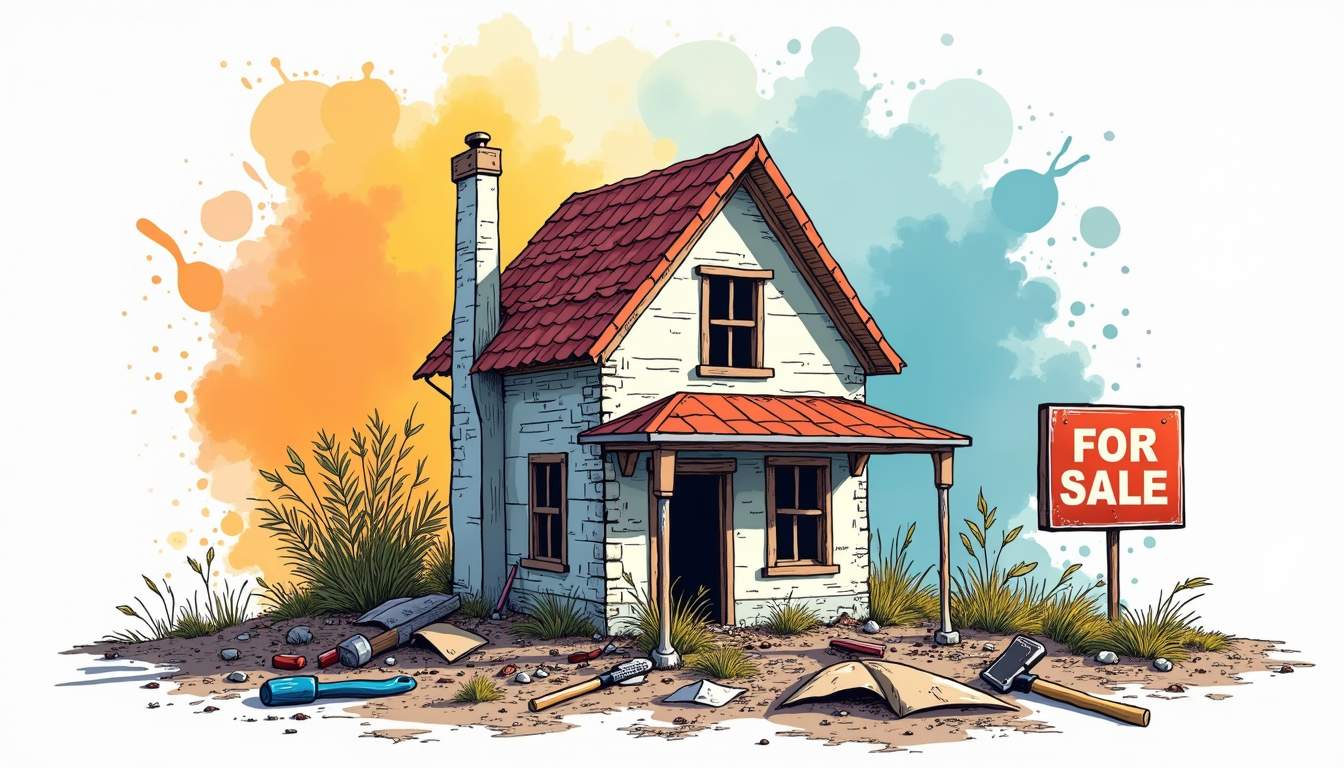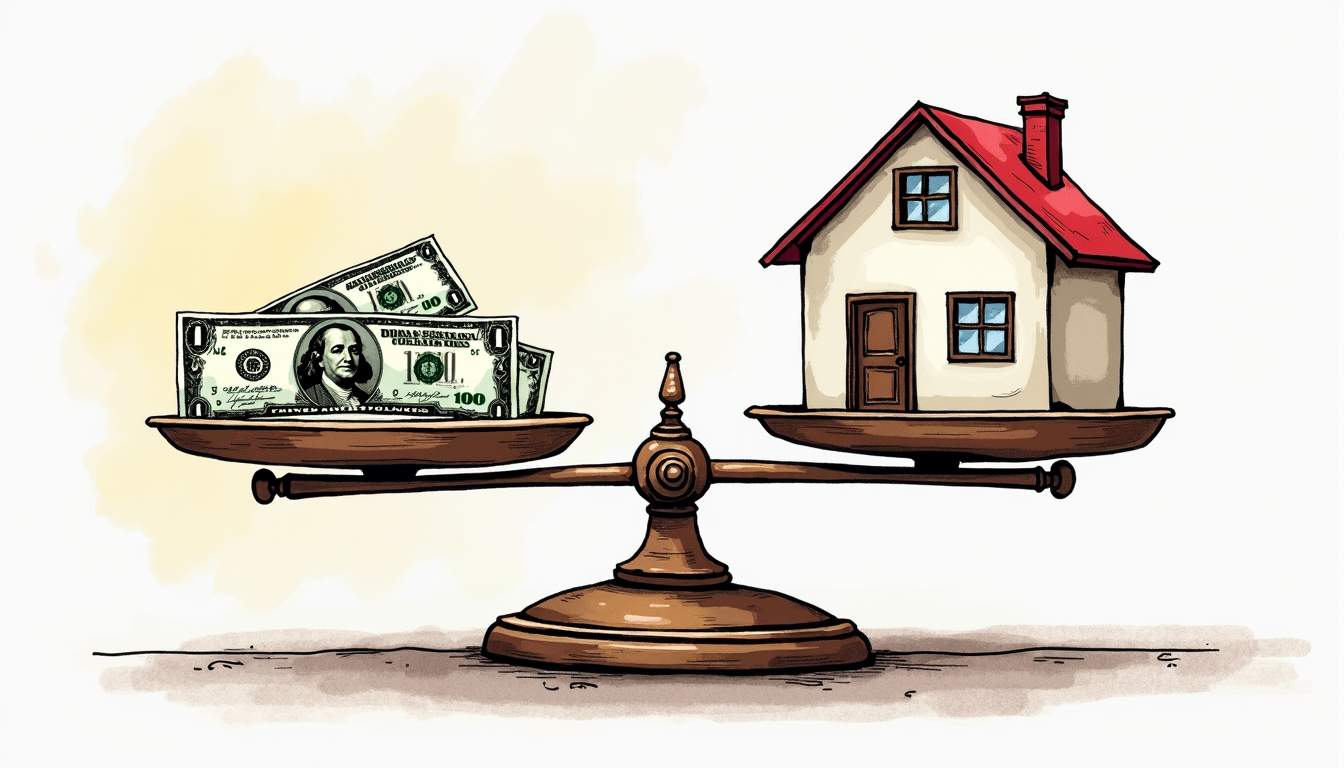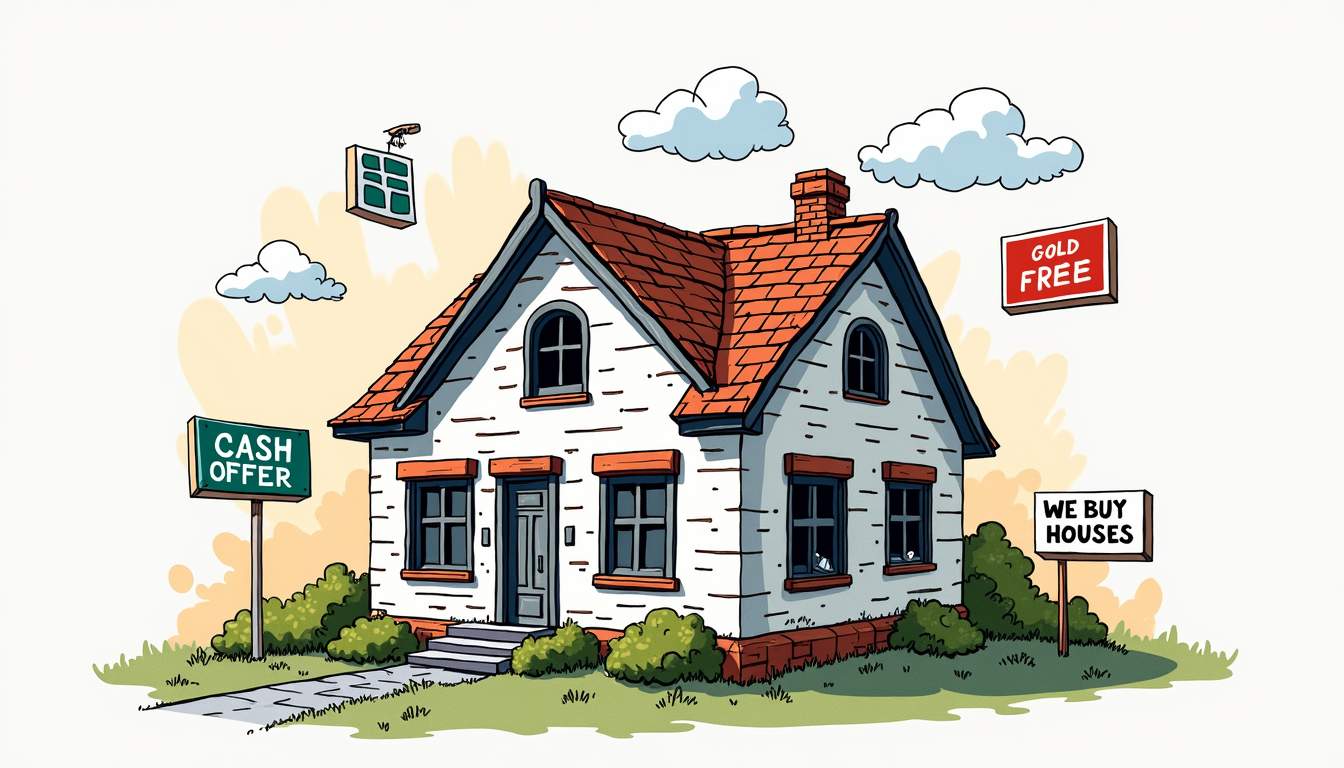
When faced with the challenge of selling a house that’s seen better days, many homeowners feel overwhelmed. The thought of repairs, renovations, and lengthy selling processes can be daunting. However, selling a house in bad condition doesn’t have to be a stressful experience. With the right strategies and tips, it’s possible to sell quickly and efficiently, even if the property requires significant work.
Before diving into the selling process, it’s crucial to understand the current real estate market dynamics. Homes in poor condition often attract a different type of buyer, typically investors or those looking for fixer-uppers. Knowing this can help in setting realistic expectations and strategies. Moreover, it’s essential to recognize that the appeal of these properties can vary significantly based on location, economic conditions, and the overall demand for housing in your area. For instance, in a thriving neighborhood, a home in disrepair may still command a decent price if the potential for renovation and appreciation exists.
Research local real estate trends to gauge how homes in bad condition are performing. Are they selling quickly? At what price point? Understanding these factors can give you a clearer picture of how to position your property. Websites that track real estate sales can provide valuable insights into comparable properties in your area. Additionally, attending local real estate investment meetings or networking events can provide firsthand accounts of what buyers are looking for and the types of renovations that yield the best returns. Engaging with local real estate agents who specialize in distressed properties can also offer tailored advice and strategies for navigating the selling process effectively.
Buyers interested in homes that need work often fall into specific categories. Investors looking for properties to flip, first-time buyers seeking affordable options, or even landlords searching for rental opportunities are all potential candidates. Tailoring your marketing approach to these groups can enhance your chances of a quick sale. For instance, highlighting the potential for equity growth and renovation possibilities can resonate well with investors, while emphasizing affordability and community features may attract first-time buyers. Additionally, consider leveraging social media platforms to showcase before-and-after renovation ideas, which can spark interest among DIY enthusiasts and those eager to create their dream home.
While the house may be in bad condition, there are still steps you can take to make it more appealing to potential buyers. Preparation can significantly impact the speed of the sale and the final selling price.
One of the simplest yet most effective ways to improve a property's appeal is to declutter and clean. Remove personal items, excess furniture, and any debris. A clean space allows buyers to envision their own belongings in the home, making it feel more inviting.
Even if the house has structural issues, a clean environment can create a more positive first impression. Consider hiring a professional cleaning service if the task feels overwhelming. Additionally, don't forget about the exterior of your home; curb appeal is crucial. Mow the lawn, trim the hedges, and consider planting colorful flowers to create an inviting entrance. A well-kept exterior can entice buyers before they even step inside.
While major renovations may not be feasible, addressing minor repairs can make a significant difference. Fix leaky faucets, patch up holes in walls, and ensure that doors and windows open smoothly. These small improvements can enhance the overall perception of the home and show potential buyers that the property has been cared for, despite its condition.
In addition to repairs, consider a fresh coat of paint in neutral tones to brighten up the space and make it feel more modern. Neutral colors appeal to a broader audience and can help to mask any imperfections in the walls. Furthermore, updating light fixtures or adding new hardware to cabinets can provide a contemporary touch without breaking the bank. These minor enhancements can create a more polished look that resonates well with prospective buyers, making them more likely to envision themselves living in the space.
Pricing a home correctly is one of the most critical aspects of a successful sale, especially for homes in poor condition. An appropriate price can attract buyers while also reflecting the property's current state. Setting the right price not only helps in drawing interest but also establishes a sense of fairness in the eyes of potential buyers, which can lead to quicker sales and fewer negotiations.

Consider hiring a professional appraiser to evaluate your home. They can provide an unbiased opinion on the property's worth, taking into account its condition and the local market. This information can be invaluable in setting a competitive price that encourages offers without undervaluing the property. Additionally, a professional appraisal can help identify specific areas where improvements could increase the home's value, guiding you on where to invest your time and resources for maximum return.
Look at recent sales of similar homes in your area, particularly those that were in poor condition. This research can provide a benchmark for pricing your home. Pay attention to how quickly these homes sold and at what price point, as this can guide your pricing strategy. Furthermore, consider the unique features of your property that might set it apart from others, such as location, lot size, or any renovations that have been completed. These factors can justify a higher price point and make your listing more appealing in a competitive market.
Keeping an eye on the broader market trends can also play a significant role in pricing your home effectively. Are home prices in your area rising or falling? Is there an influx of new buyers due to economic changes or developments in the neighborhood? Understanding these trends can help you position your home strategically. For instance, if the market is hot, you might price your home slightly above comparable sales to leverage buyer urgency, while in a slower market, pricing competitively can help you stand out.
Engaging with a local real estate agent who has experience with homes in poor condition can provide additional insights into pricing strategies. They can offer a comparative market analysis (CMA) that takes into account not just recent sales, but also current listings and expired listings that did not sell. This comprehensive view can help you understand the nuances of your local market and adjust your pricing accordingly. Agents often have access to tools and resources that can further refine your pricing strategy, ensuring you remain competitive while maximizing your potential return.
Once the home is prepared and priced, the next step is to market it effectively. A well-crafted marketing strategy can attract the right buyers and facilitate a quicker sale.
In today’s digital age, online listings are essential. Utilize real estate websites, social media platforms, and local classifieds to reach potential buyers. High-quality photos and detailed descriptions can make a significant impact. Highlight the property’s potential and any unique features, even if it needs work.
Partnering with a real estate agent who has experience selling homes in poor condition can be beneficial. They can provide valuable insights, assist with pricing, and help market the property effectively. An agent can also handle negotiations and paperwork, making the process smoother for the seller.
If traditional selling methods seem daunting, there are alternative options to consider. These methods can often lead to a quicker sale, especially for homes in bad condition.

Many investors specialize in purchasing homes that need significant repairs. Selling to an investor or cash buyer can expedite the process, as these buyers often have the funds readily available and are willing to buy properties as-is. While the offer may be lower than market value, the speed and convenience can outweigh the financial drawbacks.
Another alternative is to sell the home at auction. Auctions can attract buyers looking for a deal, and the competitive bidding process can sometimes drive the price up. However, it’s essential to research auction houses and understand the fees involved before proceeding.
Once offers start coming in, effective negotiation becomes crucial. This stage can significantly impact the final sale price and terms.

When evaluating offers, consider not only the price but also the terms. A higher offer with numerous contingencies might not be as appealing as a slightly lower cash offer with fewer conditions. Take the time to weigh the pros and cons of each offer before making a decision.
Flexibility can be a valuable asset during negotiations. Be open to counteroffers and willing to negotiate terms that may be more favorable for both parties. Clear communication can help facilitate a smoother negotiation process, leading to a successful sale.
Once an agreement is reached, the focus shifts to finalizing the sale. This stage involves several important steps that must be completed to ensure a smooth transaction.
The closing process can vary by location, but it generally involves a title search, inspections, and the signing of various documents. It’s essential to understand what to expect and to prepare for any necessary paperwork. Having a real estate agent or attorney can help navigate this process more efficiently.
As the sale approaches, start preparing for the move. This includes organizing belongings, scheduling moving services, and ensuring that all necessary arrangements are made for a smooth transition. Planning ahead can alleviate stress as the closing date approaches.
While selling a house in bad condition may seem like a daunting task, it is entirely achievable with the right approach. By understanding the market, preparing the home effectively, setting the right price, and utilizing effective marketing strategies, homeowners can successfully navigate the selling process.
Whether opting for traditional methods or exploring alternative selling options, being informed and proactive can lead to a successful sale. With patience and the right strategies, selling a house in bad condition can be a smooth and rewarding experience.
Should I Sell My House or Rent It Out?
How to Sell My House Privately: A Step-by-Step Guide
We purchase homes directly from sellers, offering homeowners a quick, straight-forward sale.Contact us for a free valuation and offer.
get my house valuation now